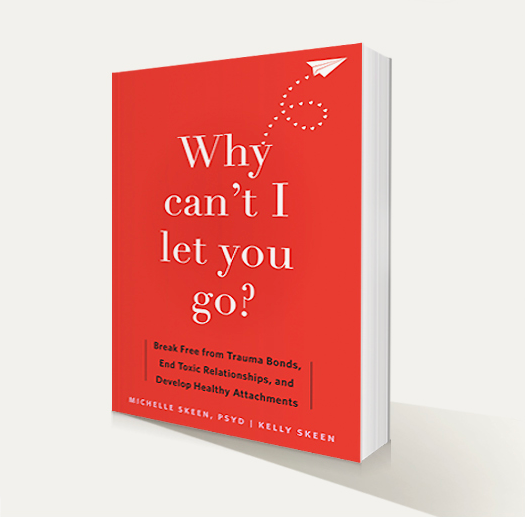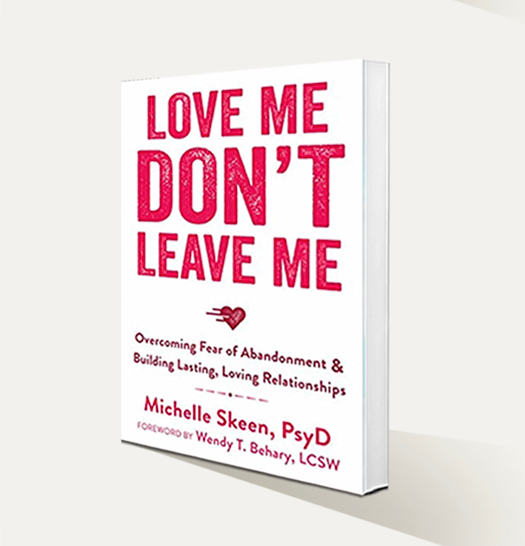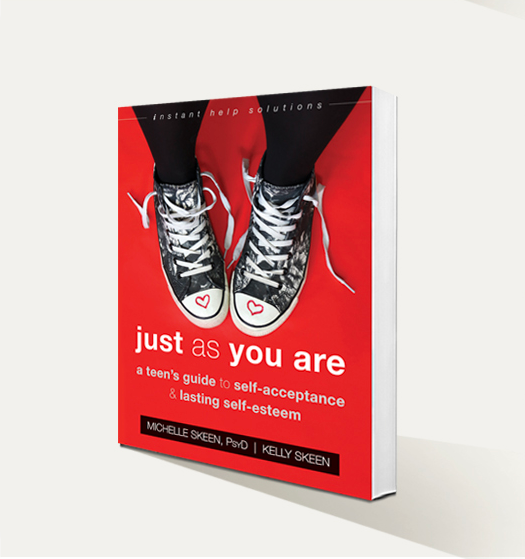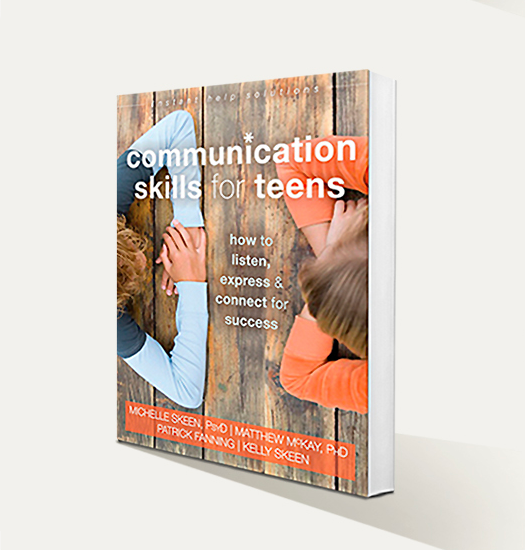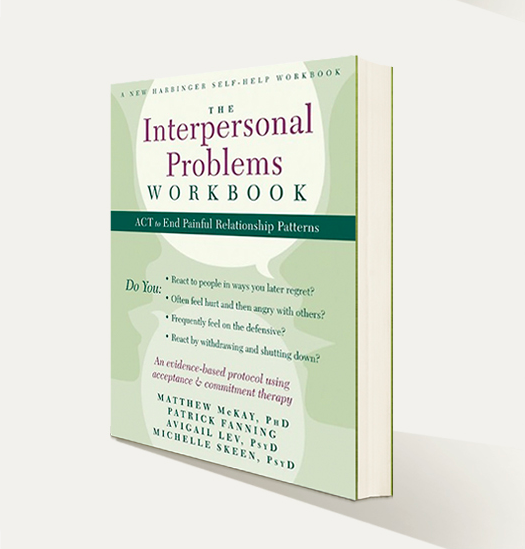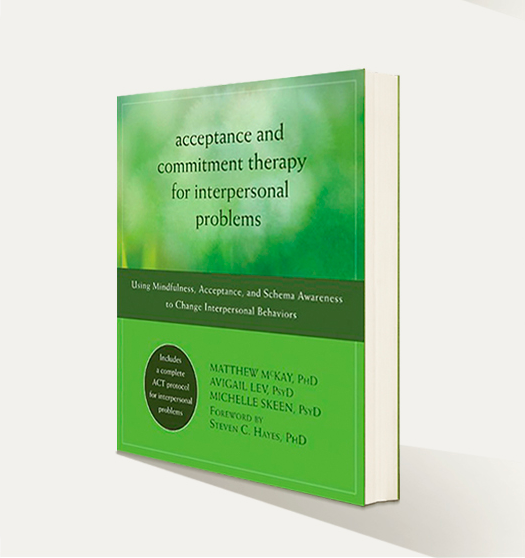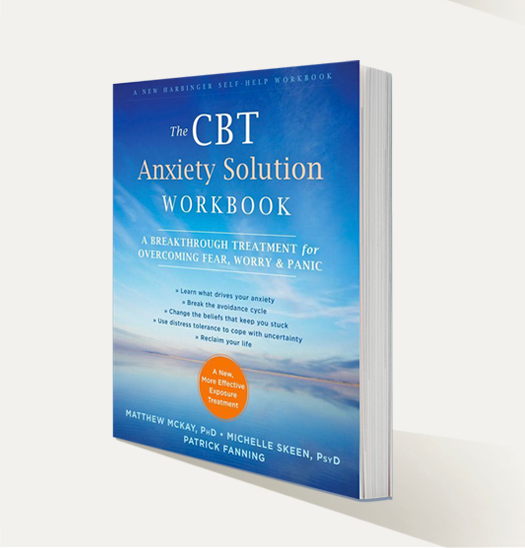My radio show on Tuesday February 17, 2015
This week on Relationships 2.0 my guest is Karen Koenig author of The Food and Feelings Workbook: A Full Course Meal on Emotional Health.
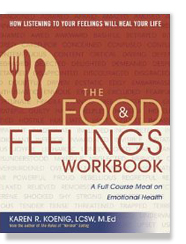 About the book:
About the book:
An extraordinary, powerful connection exists between feeling and feeding that, if damaged, may lead to one relying on food for emotional support, rather than seeking authentic happiness. This unique workbook takes on the seven emotions that plague problem eaters — guilt, shame, helplessness, anxiety, disappointment, confusion, and loneliness — and shows readers how to embrace and learn from their feelings. Written with honesty and humor, the book explains how to identify and label a specific emotion, the function of that emotion, and why the emotion drives food and eating problems. Each chapter has two sets of exercises: experiential exercises that relate to emotions and eating, and questionnaires that provoke thinking about and understanding feelings and their purpose. Supplemental pages help readers identify emotions and chart emotional development. The final part of the workbook focuses on strategies for disconnecting feeling from food, discovering emotional triggers, and using one’s feelings to get what one wants out of life.
About the author:
I am a psychotherapist, national educator, international author, and an expert on the psychology of eating–the how and why, not the what, of it. For more than three decades, my mission has been to help people with eating and weight problems learn to eat “normally” and maintain a healthy, stable weight for life without dieting and deprivation. My therapy practice is in Sarasota, FL, where I do tele-coaching and Skype consultation worldwide. As a recovered chronic dieter and binge-eater, I meld my personal recovery wisdom with my professional knowledge and experience to resolve eating problems.
My books are Nice Girls Finish Fat, The Rules of “Normal” Eating, The Food and Feelings Workbook, and What Every Therapist Needs to Know About Treating Eating and Weight Issues.
My radio show on Tuesday January 13, 2015
This week on Relationships 2.0 my guest is Karen Koenig, author of Outsmarting Overeating: Boost Your Life Skills, End Your Food Problems.
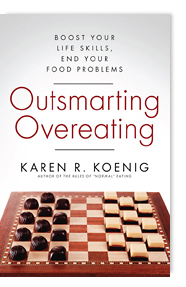 About the book:
About the book:
The reason you turn to food when you’re stressed or distressed is that you don’t have better ways of managing life’s ups and downs. According to Karen R. Koenig, an expert on the psychology of eating, you can transform your eating habits—and your life—by developing effective life skills. When you have enhanced skills, you won’t need to turn to mindless eating to make it through the day and will get the best out of life rather than letting life get the best of you. With Koenig’s guidance, you’ll learn how to establish and maintain functional relationships, take care of yourself physically and emotionally, think rationally, and create a passionate, joyful, and meaningful life. When these behaviors take root and become automatic, food becomes what it is meant to be: nourishment and one of life’s many pleasures.
About the author:
I am a psychotherapist, national educator, international author, and an expert on the psychology of eating—the how and why, not the what, of it. For more than three decades, my mission has been to help people with eating and weight problems learn to eat “normally” and maintain a healthy, stable weight for life without dieting and deprivation. My therapy practice is in Sarasota, FL, where I do tele-coaching and Skype consultation worldwide. As a recovered chronic dieter and binge-eater, I meld my personal recovery wisdom with my professional knowledge and experience to resolve eating problems.
My books are Nice Girls Finish Fat, The Rules of “Normal” Eating, The Food and Feelings Workbook, and What Every Therapist Needs to Know About Treating Eating and Weight Issues.
6 Steps for Dealing with the Ghosts of Holidays Past
by Michelle Skeen, PsyD, author of Love Me, Don’t Leave Me
eHarmony Advice
The holidays trigger many thoughts and emotions. Hopefully, they are pleasant reminiscences filled with happy feelings. Unfortunately, for some the memories are of experiences that brought disappointment and sadness. Holidays can be a painful reminder of unhappy family times and unmet needs.
Most of us have unpleasant memories from our past. However, having those memories isn’t as problematic as what we do with them. Are you expecting to be disappointed in the present and future because of your past experiences? Are you unconsciously setting traps so that others will fail you because it’s a familiar experience? Or are you isolating or distancing yourself from others with the hope of never feeling disappointment again?
Often, we are unconsciously controlling our current situation and relationships based upon our past experiences and relationships. It makes sense—we are wired to protect ourselves and to predict our present and future based upon our experiences from the past. Unfortunately, this can damage our relationships and prevent us from getting the love that we deserve.
So, how can we deal with past experiences that are negatively impacting our present day situations and relationships?
Here are six steps for dealing with the ghosts of holidays past:
1. Strive for Self-Awareness
Self-awareness is an important first step. Making the connection between your past experiences and your current relationship struggles can seem obvious, but we often fail to make the conscious connection because we don’t want to re-experience the pain. However, the truth is that we are already experiencing pain — and creating more pain — by trying to avoid it.
Instead, by making the direct connection between your past experiences and your current behaviors, you can begin to break the patterns that have kept you stuck, knowingly or unknowingly, in your past. Then, in your mind or on paper, create a snow globe that contains your painful memory—maybe it’s symbolic or maybe it’s an actual scene from your past that is most representative of your current struggles. This helps you contain your memory and enables you to distinguish it from your present day experiences.
2. Recognize When Your Snow Globe is Shaken
Second, when you get triggered by a situation or a memory, imagine that your snow globe is being shaken. The snow swirling around your image represents all of your negative thoughts and painful emotions. Now, take this moment to recognize the connection between your current emotional state and your past experience. It’s normal and understandable that you are still experiencing the pain associated with something that happened a while ago. It’s part of our common human experience. The pain we experience around memories is unavoidable. That might sound hopeless and depressing, but there’s good news, too. The change comes with how you behave in response to these triggering events. When you can begin to recognize that, when you get triggered in the present, you are still reacting to your past experiences, you can begin to make the changes that will get you closer to the healthy and loving relationships that you deserve.
3. Focus on the Moment
Third, focus your attention on the moment. Be present. Bring awareness to your current situation. Recognize that the flood of negative thoughts and painful emotions are tied to your past experiences. Mindfulness is a key component to getting unstuck from your past and making the important distinction between your previous experiences and what is happening now. This means acknowledging your thoughts and emotions (both positive and negative) objectively and with curiosity. View them as a news crawl on the television—they are passing by and you aren’t getting stuck on any specific thought of emotion. Or imagine yourself as the sky and you are watching the weather come and go—the sun, the clouds, the rain, the storms—they all pass and you are just a curious observer.
4. Identify Your Values
Fourth, once you are in the moment and the overwhelming thoughts and emotions have passed, you can make a behavioral choice that will get you closer to the healthy relationships that you desire. This choice can be challenging in that you are likely locked in a pattern of behavior that feels safe. The problem is that this old pattern isn’t getting you closer to the healthy loving relationships that you deserve.
In order to make new – and more helpful – choices, you will need some motivation and guidance when you’re faced with a triggering situation. The key is to let your choice be driven by your values. Thus, you must start by identifying your values, which can often get lost when we are focused on the most efficient way to protect ourselves. One way to reconnect with your values is to imagine what you would want people to say about you at your memorial service. How do you want to be remembered?
5. Make New Choices
Fifth, when you find yourself getting triggered by a person or situation, make the connection to your snow globe and recognize that your negative thoughts and painful emotions are connected to that experience (and others like it) from your past. You should not be reacting today to the person or situation from your past. You need to respond to your present day situation. This means making a helpful behavioral choice that is aligned with your values and with your goal of getting closer to the healthy and loving relationship you deserve.
6. Commit to Compassion
Sixth, bring compassion to yourself and others. We are all on a journey, and we are all touched deeply by pain. Compassion is sensitivity to the suffering of self and others, with a commitment to try to relieve and prevent this pain. Our inner critic can get in the way of accessing our compassionate self. And, if we’ve been hurt deeply we can often view compassion for others as a sign of weakness—making ourselves vulnerable to be hurt again. But, the truth is that our compassionate selves make us strong, and enable us to make meaningful and loving connections with ourselves and others.
The ghosts of holidays past will never disappear, but you can take away their power to control your present day experiences and relationships by staying in the moment and making the helpful behavioral choices that will bring you closer to the love that you deserve.
Read it on eHarmony Advice
Stop Self-Sabotaging Your Relationships: New Book Claims that We ALL Fear Abandonment and Reveals What We Can Do to Conquer It
by Scarlett Russell
dailymail.co.uk
Childhood trauma, bad break-ups and ‘negative core beliefs’ could be the reason you’re unlucky in love, according to a new book written by clinical psychologist Michelle Skeen, PsyD.
In the book, Love Me, Don’t Leave Me, Skeen describes how a single negative childhood memory or painful break-up in adolescence can lead to deep-rooted feelings of abandonment in later life. And that one single experience could be the one thing that is holding you back from having a loving, lasting relationship.
‘I’ve been working with couples for 12 years and abandonment issues arise again and again,’ Skeen explained to MailOnline. ‘They can surface anywhere from the earliest stages of dating right through to marriage and often go un-resolved. But if we pay attention we start to recognise patterns and themes.
‘We’re all born with the fear of abandonment; if we don’t get looked after, we die. It’s just the degree to which we have it.
The problem isn’t that you’re experiencing the painful emotions or negative thoughts, it’s that you are reacting with unhelpful behaviors.’
Here, Skeen explains some of the ways fear of abandonment may be sabotaging your relationships – and details how you can put a stop to them once and for all.
Trying to Force a Relationship that Isn’t There
‘There is so much uncertainty and ambiguity in dating,’ says Skeen. ‘Safety means predicting, and if we have a fear of being left or rejected, we would rather force an outcome.’
Love Me Don’t Leave Me offers exercises to help you spot the associations you have with these fears, pushing you to think back to times you have felt vulnerable. This enables you to identify all the feelings involved in that experience which will in turn explain your relationship ‘triggers’ – fear that is activated in certain situations.
‘People you meet will have their own set of core beliefs, but they may be less in tune with them and can pull back before the relationship has a chance to grow,’ Skeen adds. ‘Reassuring them will help, but you can only do so much.
‘See the ending of a relationship as a chance for increased awareness about yourself.’
Starting Fights to Push your Partner
‘People do this to test the relationship as their fear of being abandoned means they are expecting to be left anyway, so are almost seeing how far they can push their partner before breaking point,’ says Skeen.
‘Before you know it, you’ve pushed too far and they’ve left, as your expected, but who’s fault is that?’
Skeen suggests creating a ‘Snow Globe’ – focusing on a particularly painful memory and writing down all the details and emotions around it.
‘This makes you more aware of your issue. When it is activated – through an argument or certain behavior it’s shaken like a Snow Globe, but instead of reacting to that fear, you will be able to think and act rationally, communicating your fears.
The Pre-emptive Strike
Have you ever panicked and ended a perfectly good relationship?
‘When we fall for someone it can feel like a loss of control,’ says Skeen. ‘Your reaction may be to strike out altogether, rationalizing that you’re leaving that person before they leave you, even if they have no intention of leaving you. It’s destructive behavior.’
Skeen says you must exercise mindfulness in this situations, rather than automatically ‘freaking out’.
‘It’s the skill of staying in the present and not indulging in your initial, potentially damaging, reaction,’ she adds. ‘You must develop a careful and compassionate response to your current situation. Don’t freak out end it!’
When your issues are triggered, mentally repeat the words, ‘thought’ or ‘emotion.’ This will not only relax you, but make you realize that’s just what these feelings are: thoughts and emotions.
Getting Involved with Someone Unobtainable
Choosing a partner who is married, is known to be a womanizer or who has a demanding job that leaves no room for intimacy are all decisions which stem from fears of abandonment, according to Skeen.
‘If you are convinced no one is good enough, you will choose unsuitable partners who will leave you – as you expect,’ says Skeen. ‘People complain that it’s difficult to meet the right person, but ultimately we have to look at ourselves.’
The book lists common traits found in unsuitable partners, such as being controlling, possessive, flaky or judgmental – and teaches you to focus on values; not specific goals to achieve but the direction you want your life to go in.
‘Use your values to keep you on track, to help you make the proper decision when you’re at that moment of choice when you can choose your unhelpful coping behaviors,’ says Skeen.
Overreacting
‘When we fall for a guy, especially after we’ve slept with them and our hormones are in overdrive, it’s easy to let emotions rather than rationality, take the lead,’ says Skeen. ‘Pushing for that immediate outcome is always going to be really damaging.’
According to the book, the key is to avoiding irrational behavior is to distract yourself. Go for a run or call a friend you know is going through a tough time.
‘Most important is to be comfortable with feeling a little uncomfortable,’ she says. ‘Don’t react to this feeling of unease, just ride it out. Accept that it’s simply an uncomfortable feeling, and that’s all. It doesn’t need attention, or to be fixed.
‘Once you figure that out, the rest just isn’t important.’
Relying on Your Partner for Everything
Being in a relationship means being honest about your wants and needs, says Skeen, but it’s important to have realistic needs based on the present, not the past.
‘We often don’t get our needs met because we’re worried about appearing demanding,’ she explains. ‘But someone with abandonment issues may expect their partner to be all the things they’ve been missing, such as a parent, carer or even previous boyfriend.
‘You’re always going to be disappointed and make the other person feel like they’re a disappointment. You have to make that distinction and let go of that so you don’t overburden the current relationship.’
Read it on dailymail.co.uk
Guest for my radio show on Tuesday February 4, 2014
My guest this week on Relationships 2.0 is Shawn T. Smith, PsyD author of The Woman’s Guide to How Men Think: Love, Commitment, and the Male Mind.
 About the book:
About the book:
Comedian George Carlin once said, “Women are from earth. Men are from earth. Just deal with it.” Though witty, this sentiment fails to recognize one of the real truths in life: that both genders are completely mystified by one another, and often have a mile-long list of complaints for the opposite sex. Yet, generally speaking, both men and women want to get along—especially if there’s romance involved.
A Woman’s Guide to How Men Think offers a practical, humorous, yet compassionate guide for women who want to learn the secrets of the elusive male mind. With author Shawn Smith’s trademark humor, you’ll come to understand why men think and see the world the way they do, and how to work with men to cultivate understanding and communication in relationships, without expecting men to be creatures that they are not. This isn’t a male-bashing book about how men should be more like women, but a book about how men actually are, and how women can use this understanding to get what they need from their relationships.
You’ll also learn why men often feel frustrated and criticized, how to deal with lack of communication in ways that don’t put men on the defensive, and how being curious and compassionate (while not accepting disrespectful or abusive behavior) instead of dismissing men for their inherently male traits can lead to greater understanding between the sexes.
The plain truth is that both men and women are from planet earth. But that doesn’t mean we are the same. If you are looking for an insider’s guide to the ever-elusive male mind, this is the book for you.
About the author:
Shawn Smith is a clinical psychologist in Denver, Colorado and the author of two books. His first book, Surviving Aggressive People, is a highly-respected book of verbal de-escalation and violence prevention skills. His second book, The User’s Guide to the Human Mind offers a quirky but practical look at the difficulties that the typical human mind dishes out to its owner. Shawn also writes a blog at ironshrink.com, where he answers important questions such as: Can dogs learn to read? What is relational frame theory? Is my ex possessed? His writing is light-hearted, impeccably researched, and always useful.
Guest for my radio show on Tuesday April 23, 2013
My guest on Relationships 2.0 this week is Martin Antony, PhD author of When Perfect Isn’t Good Enough: Strategies for Coping with Perfectionism.
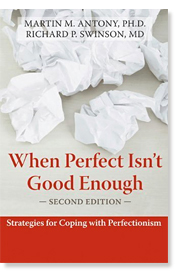 About the book:
About the book:
It’s only natural to want to avoid making mistakes, but imperfection is a part of being human. And while perfectionists are often praised for their abilities, being constantly anxious about details can hold you back and keep you from reaching your full potential.
In this fully revised and updated second edition of When Perfect Isn’t Good Enough, you’ll discover the root cause of your perfectionism, explore the impact of perfectionism on your life, and find new, proven-effective coping skills to help you overcome your anxiety about making mistakes. This guide also includes tips for dealing with other perfectionists and discussions about how perfectionism is linked to worry, depression, anger, social anxiety, and body image. As you complete the exercises in this book, you’ll find it easier and easier to keep worries at bay and enjoy life — imperfections and all.
This book has been awarded The Association for Behavioral and Cognitive Therapies Self-Help Seal of Merit — an award bestowed on outstanding self-help books that are consistent with cognitive behavioral therapy (CBT) principles and that incorporate scientifically tested strategies for overcoming mental health difficulties. Used alone or in conjunction with therapy, our books offer powerful tools readers can use to jump-start changes in their lives.
About the author:
Martin Antony PhD is professor of psychology at Ryerson University in Toronto, ON, Canada. He is also director of research at the Anxiety Treatment and Research Centre at St. Joseph’s Healthcare in Hamilton, ON, Canada, and president-elect of the Canadian Psychological Association. He lives in Toronto, ON, Canada. www.martinantony.com
Guest for my radio show on Tuesday February 19, 2013
My guests on Relationships 2.0 this week are Scott Barry Kaufman and Glenn Geher, authors of Mating Intelligence Unleashed: The Role of the Mind in Sex, Dating and Love.
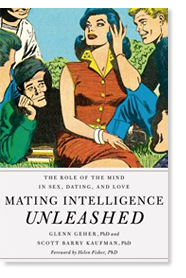 About the book:
About the book:
Psychologists often paint a picture of human mating as visceral, instinctual. But that’s not the whole story. In courtship and display, sexual competition and rivalry, we are also guided by what Glenn Geher and Scott Barry Kaufman call Mating Intelligence—a range of mental abilities that have evolved to help us find the right partner. Mating Intelligence is at work in our efforts to form, maintain, and end relationships. It guides us in flirtation, foreplay, copulation, finding and choosing a mate, and many other behaviors.
In Mating Intelligence Unleashed, psychologists Geher and Kaufman take readers on a fascinating tour of the crossroads of mating and intelligence, drawing on cutting-edge research on evolutionary psychology, intelligence, creativity, personality, social psychology, neuroscience, and more. The authors show that despite what you may read in the latest issue of Maxim, Playboy, Vogue, or GQ, physical attractiveness isn’t the whole story. Human mating draws on a range of mental skills and attributes—from the creative use of pick-up lines, to displays of charisma, intelligence, humor, personality, and compassion. Along the way, the authors shed new light on age-old questions, such as: What role does personality play in mating? Which traits are attractive—and which traits repulse? How do people really choose mates? How do men and women deceive each other? How important is emotional intelligence? Why do people create art—and does it have anything to do with sex? Do nice guys really finish last?
Since Glenn Geher coined the term Mating Intelligence in 2006, it has drawn a great deal of media attention, ranging from a Psychology Today cover story to articles in the New Scientist, the Washington Times, the Huffington Post, and elsewhere. Now, in Mating Intelligence Unleashed, readers will have the first full account of this revolutionary new approach to dating, mating, and love.
About the authors:
Glenn Geher is Chair of the Psychology and Director of Evolutionary Studies at SUNY New Paltz, where he won the SUNY Chancellor’s Award for Excellence in Teaching. Dr. Geher founded the NorthEastern Evolutionary Psychology Society (NEEPS) and is co-founder of the international Evolutionary Studies (EvoS) Consortium, funded by the National Science Foundation. He is particularly interested in how evolution can help us understand all facets of the human animal and his many publications help us move toward this goal. His work has been featured in many media outlets—ranging from Psychology Today to Cosmopolitan to the Chronicle of Higher Education.
Scott Barry Kaufman is Adjunct Assistant Professor of Psychology at New York University and co-founder of The Creativity Post. An award-winning authority on intelligence, creativity, and the arts, he is co-editor of The Cambridge Handbook of Intelligence with Robert J. Sternberg and The Psychology of Creative Writing with James C. Kaufman. His work has been covered in media outlets such as Psychology Today, Scientific American, Mind and Men’s Health. Additionally, he blogs for Psychology Today, Huffington Post, Scientific American, and Harvard Business Review.
Sh*t happens: dealing with your emotions and improving your relationships
This story begins and ends in my kitchen. It doesn’t involve cooking, but it does include a recipe for how to improve your relationships in the New Year.
The morning of the 30th I walked into my kitchen to make coffee and I stepped in a big pile of dog sh*t (thank you Lucy!). This is an unusual event and an important reminder that “sh*t happens.” Also, a reminder of the consequences associated with eating too many holiday treats. Oh, I should mention that I was barefoot. Hilarious!
Sh*t is always going to happen—sometimes it is expected and other times it comes as a surprise. We don’t have as much control over these events as we do over how we respond to them. Many times our reactions make the situation worse. We all experience emotional pain…it is unavoidable. This unavoidable pain is the result of our early experiences and the core beliefs (schemas) that formed as the result of these experiences. When we have an experience and our core beliefs get triggered the pain that we feel is called primary or schema-related pain. When we try to avoid the primary pain with unhealthy coping behaviors (schema coping behaviors) we create additional pain. This is the pain that we can eliminate thereby ultimately minimizing the primary pain. Our unhealthy coping behaviors hurt other people, relationships, and ultimately we are hurting ourselves. Sometimes these behaviors can make us feel like we are blocking or controlling the pain but the unhealthy coping behaviors only offer temporary relief in the moment—in the long run they can contribute to our primary pain.
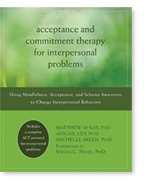 Here is an example to illustrate what I’ve just described (below are excerpts from ACT for Interpersonal Problems: Using Mindfulness, Acceptance, and Schema Awareness to Change Interpersonal Behaviors by McKay, Lev and Skeen):
Here is an example to illustrate what I’ve just described (below are excerpts from ACT for Interpersonal Problems: Using Mindfulness, Acceptance, and Schema Awareness to Change Interpersonal Behaviors by McKay, Lev and Skeen):
Beth has a core belief that she is defective—not good enough, unworthy. Here is an excerpt of a dialogue between Beth and her therapist:
Therapist: There are a couple of triggering situations with your husband: when he criticizes something you do, and when he seems kind of clipped, cold, and uncommunicative.
Beth: Yes. I feel vulnerable with him.
Therapist: Because he can trigger that feeling of unworthiness—the defectiveness schema, the sense that you’re somehow wrong or bad?
Beth: Right.
Therapist: So let’s look at how you cope. When he criticizes, you counterattack—you get angry and talk about all the things he does wrong. But when he’s cold and withdrawn, you find yourself clinging and demanding attention. Those are two very different coping responses.
Beth: When he criticizes, I feel hurt…and ashamed. And I can’t stand that, so I blow up. But his withdrawal is scary. I feel like he’s getting sick of me. So I try to pull him close.
Therapist: When you use those schema coping behaviors—getting angry or trying to pull your husband close—does it make you feel better or worse?
Beth: I guess I feel better at first. When I lash out, I don’t feel as bad about myself. And when I get clingy and demanding, I feel like I’m holding on to him, so I’m a little less scared.
Therapist: And then what? Does the schema coping behavior continue to help you?
Beth: No. He gets annoyed, and then I feel like something has gone wrong between us.
Therapist: So the coping behavior helps in the short term, but after a while…
Beth: Yeah. I feel like I’m screwing things up.
Therapist: So the coping behaviors aren’t a long-term solution. They seem like they might even strengthen that old schema—the sense of being unworthy.
You can see how Beth’s unhealthy coping behaviors are actually re-enforcing her core belief that she is defective.
Now that Beth recognizes that her coping behaviors are not eliminating the pain or improving her relationship she can move on to the next step which is a critical step in Acceptance and Commitment Therapy—creative hopelessness. Creative hopelessness marks the moment when we recognize that our unhealthy coping behaviors (experiential avoidance) aren’t making our relationships or us better. Everything that we’ve tried in order to control and minimize the primary pain (schema pain) hasn’t worked and, if anything, the pain is worse. In a way this is about giving up…admitting and accepting that trying to stop the primary pain has only created more suffering for us and the people we are close to. It’s time to stop struggling with the schema-related pain—it is unavoidable. The old ways of coping haven’t worked—out with the old and in with the new!!! It’s time to observe and wait rather than fight and resist.
The following metaphor can be effective in helping us to see our experience as transitory.
Having different kinds of weather is necessary in life. After all, we wouldn’t take the same delight in a beautiful sunny day if every day was bright and blue. Plus, we need rain and snow to supply water. Similarly, we need difficult emotions to let us know when we’re off course or have lost sight of what’s important.
Do you think that you could observe all of your weather without struggling with it or trying to change it? Could you just observe the sensations in your body, the thoughts in your head, and the emotions that surge up and recede? Sometimes you’re happy, sometimes sad, sometimes fearful. Would you be willing to notice all of your experience as it unfolds, moment to moment?
Difficult thoughts and emotions, like the ones triggered by your schemas, are like a terrible, scary storm with thunder, lightning, and howling wind. Eventually the storm quiets and the air clears. The sky simply holds these storms. Could you be like the sky and stop struggling with the weather? Could you learn to just watch it as it comes and goes, just seeing painful thoughts show up and fade away?
We all need to work on improving our relationships and that means understanding ourselves better, identifying our core beliefs and the situations and interactions that trigger our core beliefs, and taking an honest assessment of how we behave when we are in pain and the toll that our behavior is taking on us and the people who we are close to. It’s not about behaving perfectly. It’s about trying to make the changes that will get you closer to getting the love that you want and deserve.
It’s the morning of January 1st and I’m back in my kitchen. The floor is clear of any obstacles. I’m making the same breakfast that I make every morning…two sunnyside up eggs. I cracked the first egg and two yolks dropped into the pan. Now that is a great beginning to a new day!
Guest for my radio show on Tuesday December 18, 2012
My guest for this week on Relationships 2.0 is Julie M. Simon author of The Emotional Eater’s Repair Manual: A Practical Mind-Body-Spirit Guide for Putting an End to Overeating and Dieting.
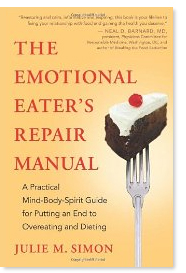 About the book:
About the book:
Despite our best intentions, many of us find ourselves routinely overeating at meals, snacking mindlessly, or bingeing regularly. As emotional eaters, we turn to food for comfort, soothing, distraction, and excitement. There’s a disconnection fueling our eating, robbing years from our lives, and we know it. We’re tired of restrictive diets that lead back to overeating, and we’re ready to try something different.
Therapist and life coach Julie Simon offers a new approach that addresses the true causes of overeating and weight gain: emotional and spiritual hunger and body imbalance. The Emotional Eater’s Repair Manual presents five self-care skills, five body-balancing principles, and five soul-care practices that can end overeating and dieting forever. You’ll learn to nurture yourself without turning to food, to correct body and brain imbalances that trigger overeating, and to address your soul’s hunger. Weight loss, more energy, improved health, and self-esteem will naturally follow.
About the author:
Julie M. Simon, MA, MBA, LMFT, is a licensed psychotherapist and life coach with more than twenty years of experience helping overeaters stop dieting, heal their relationships with themselves and their bodies, lose excess weight, and keep it off. A lifelong fitness enthusiast, she is also a certified personal trainer with over twenty-five years of experience designing exercise and nutrition programs for various populations. Julie Simon is also the founder and director of the Los Angeles-based Twelve-Week Emotional Eating Recovery Program, which offers an alternative to dieting by addressing the mind, body, and spirit imbalances underlying overeating. Her professional experience with and personal journey through childhood trauma, weight challenges, and body, brain, and spiritual imbalances led to the creation of the twelve-week program, which she has been running for twenty years. For more information and inspiration, you can visit her online at www.overeatingrecovery.com.
Guest for my radio show on Tuesday November 13, 2012
This week my guest on Relationships 2.0 is Deborah Price author of The Heart of Money:
A Couple’s Guide to Creating True Financial Intimacy.
About the book:
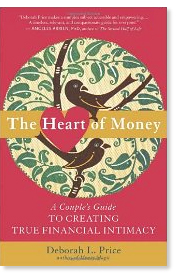
Money issues have long been the number one cause of relationship disharmony and divorce, yet when it comes to identifying and changing unhealthy money patterns and behaviors, many couples feel helpless. Money coach Deborah Price has taught thousands of people how to work together to resolve money conflicts and create a financially empowered future. In these pages, she presents strategies and tools for creating financial intimacy while learning to communicate about money issues calmly and reflectively, rather than reactively. With inspirational stories and practical techniques and exercises, this book will help you and your partner:
• learn the language of financial intimacy and talk about money in a healthy and empowering way
• recognize and change unhealthy money patterns
• identify which of the eight money types apply to each of you and understand the
impact they have on your life, your relationship, and your finances
• build a mutual sense of financial security and confidence
• work through setbacks and challenges to make your relationship stronger
than ever before
About the author:
Deborah Price is the Founder and CEO of The Money Coaching Institute, which provides money coaching and training to both individuals, couples and corporations. A former financial advisor for over twenty years with firms such as Merrill Lynch, Mass Mutual, AIG and London Pacific Advisors, Deborah left the financial industry to pioneer the field of Money Coaching.
Coping with money issues, both practically and psychologically, continues to be a major life struggle for millions of people and yet, there is very little help available. As a result, people often manifest money patterns, beliefs and behaviors that prevent them from experiencing their full financial potential.Deborah has developed a unique, step-by-step coaching program that helps clients move beyond barriers to their personal and financial success. As a result, client’s experience renewed hope, confidence, and enhanced financial success.
Through education and awareness, Deborah is committed to empowering others around money, both personally and practically. She is the author of Money Therapy an Money Magic: Unleashing Your Potential for Wealth and Prosperity; and Start Investing Online Today. She has appeared on numerous radio and television shows throughout the United States and is considered a leading expert in her field. She resides in Northern California with her family.










